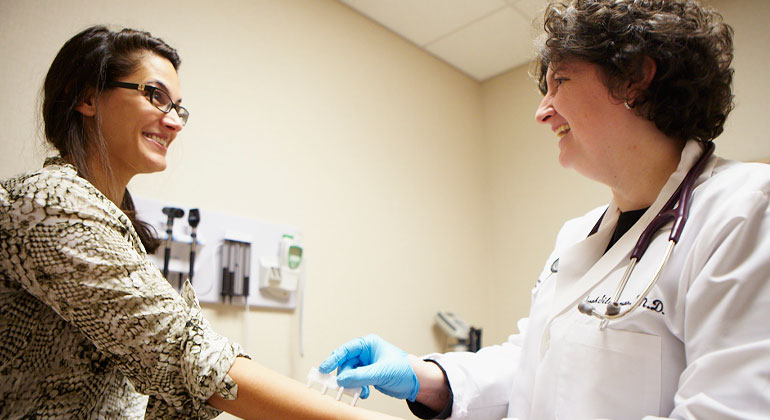Drug Allergy

Drug allergies are a bad physical reaction to a type of medication.
A drug allergy may cause symptoms that are relatively minor, like hives or other rashes that can be treated, but it also can lead to anaphylaxis, a potentially life-threatening allergic reaction. Therefore, drug allergies must be known and avoided.
However, the diagnosis of a drug allergy can be frustrating and confusing. You can have an allergic reaction while taking several drugs at the same time and not know which one is the culprit. You can also outgrow an allergic reaction; if you haven’t taken the drug for a long time, you may be unsure if you are still allergic to it. It can also be difficult to determine whether a reaction to a drug is an allergy or a side effect that was not anticipated.
Having a drug allergy or being told you may have a drug allergy, has been associated with the prescription of antibiotics with more side effects, longer length of stay in the hospital, and lower quality of life. It is important to confirm any suspicion of a drug allergy so the best drugs for a particular condition can be prescribed for you. For example, the overwhelming majority of people who have been told they are allergic to penicillin are found not to be, after further testing.
Managing a Drug Allergy
The key to managing a suspected drug allergy is to evaluate whether or not the allergy may be real, or a misdiagnosed intolerance or side effect. Understanding the difference will help your medical team make the best recommendations for you.
In some cases, evaluating a suspected drug allergy may involve taking a specifically prescribed amount of the drug under careful observation by the medical team. This is called a drug challenge. When a certain drug is essential, the allergist may recommend a desensitization procedure to help your immune system develop a tolerance to the medicine.
Your doctors also will work to ensure that your documented medical record of drug allergies is up to date and accurate. After accurate testing, you and your doctor will discuss the proper steps you should take. As additional ways to diagnose and treat drug allergies emerge, your doctors will be able to advise on the most state-of-the-art approach to your care.